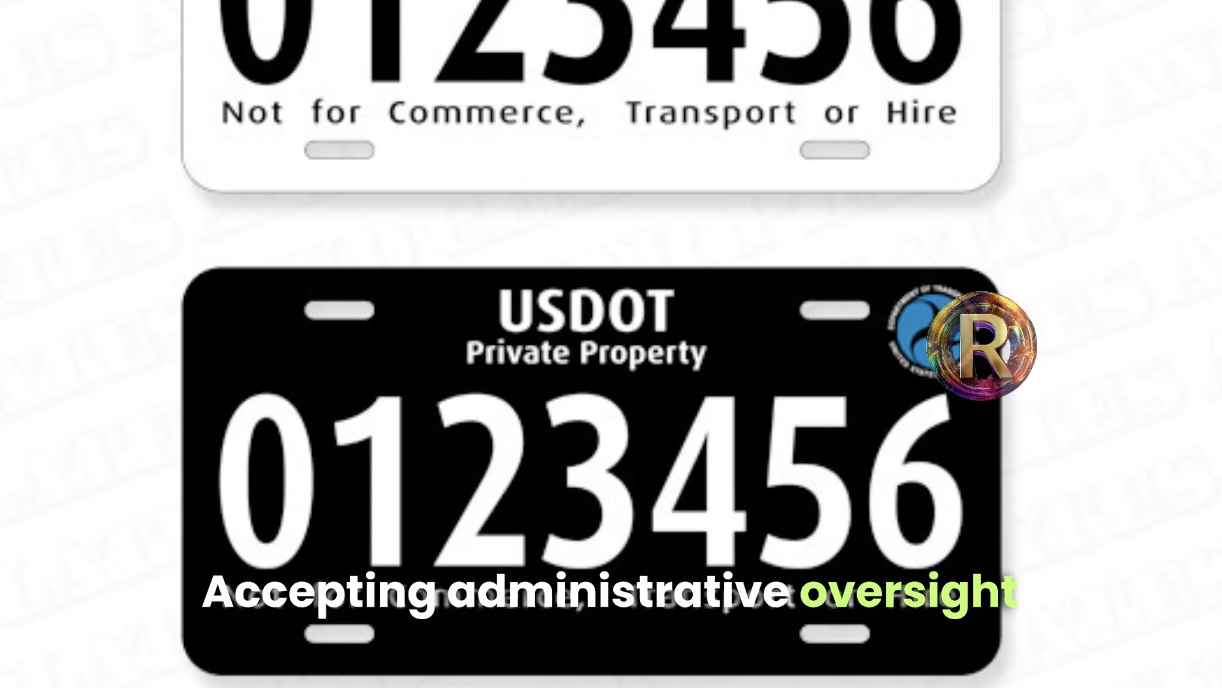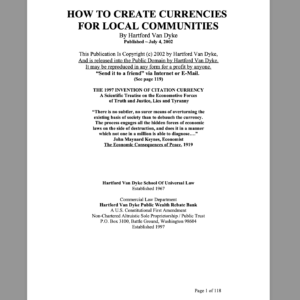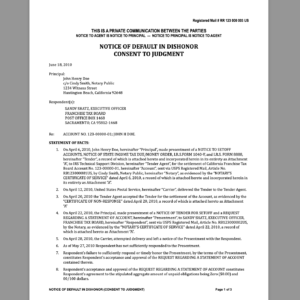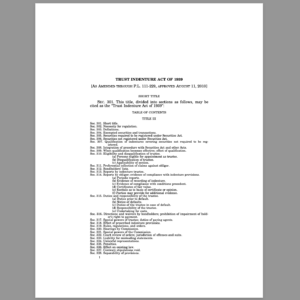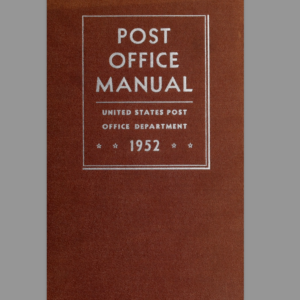In the world of transportation, many individuals and private operators seek lawful ways to travel freely while avoiding the pitfalls of commercial entanglement. One strategy people explore is obtaining a USDOT number for private transportation purposes. While this might seem like a lawful workaround, what most don’t realize is that the act of registration itself can result in the relinquishment of rights, including true title ownership, to the STATE or the UNITED STATES—even when done with purely private intentions.
Let’s break this down, step by step.
🔹 What Is a USDOT Number?
A USDOT number is issued by the Federal Motor Carrier Safety Administration (FMCSA), a division of the U.S. Department of Transportation (USDOT). It’s used to identify, monitor, and regulate vehicles engaged in interstate commerce, including carriers of cargo and passengers.
However, some private individuals use a USDOT number to:
-
Avoid state DMV plates or commercial tags
-
Demonstrate administrative “responsibility” to avoid harassment
-
Appear compliant while traveling privately or non-commercially
But here’s the issue: obtaining a USDOT number is still a form of registration—and in law, registration is contract.
🔒 What Happens During Registration?
When you register a vehicle—whether with your State DMV or with the USDOT—you are voluntarily entering into a legal contract that has significant implications. Specifically, you are:
-
Transferring an interest in the property
-
Declaring the vehicle as a regulated asset
-
Granting jurisdiction to a state or federal entity
-
Submitting to statutory obligations and administrative enforcement
This is why the state or federal government can:
-
Issue license plates or DOT numbers
-
Require insurance, inspections, and renewals
-
Enforce fines and penalties
-
Seize the vehicle under civil asset forfeiture
You may retain “registered owner” status, but legally, you are only a user, operator, or bailee—not the true holder of the allodial title.
📘 Legal Fact: Registration = Relinquishment of Rights
Contrary to popular belief, registration doesn’t just mean putting your name on file. In legal terms, it means surrendering ownership and submitting to regulation.
By registering your private property—such as your automobile—you contractually convert it into a regulated entity, now subject to the jurisdiction of the STATE or UNITED STATES INC.
Even if your intent is private, the act of registration itself establishes presumed commercial use and invites regulation.
⚠️ The Illusion of Private Operation
Many well-intentioned individuals believe that labeling their vehicle “Not for Hire” or calling it a private conveyance under a USDOT number shields them from commercial regulation.
However, when you apply for a USDOT number, you are:
-
Utilizing a federal instrumentality
-
Operating within a commercial framework
-
Accepting administrative oversight
-
Subjecting yourself to Title 49 U.S. Code and Title 49 CFR
The regulations, forms, and system are built for commerce—and by engaging with them, even with private intentions, you contract into that jurisdiction.
🏛️ Title and Jurisdiction: Who Really Owns the Vehicle?
Once registered, whether with the STATE DMV or USDOT, you no longer hold true legal title. Instead:
-
You become the registered user
-
The STATE or UNITED STATES becomes the legal titleholder
-
Your vehicle becomes a regulated asset, not private property
That means:
-
The vehicle is taxed
-
Its use is conditioned by law and statute
-
It can be seized or restricted under “public policy”
And this applies even if your vehicle bears markings like “Private”, “Not for Hire”, or “Sovereign Use Only”.
✅ Is There a Lawful Alternative?
Yes. If the goal is to retain true title and preserve private control, there are lawful steps you can take:
-
Do not register the vehicle with the STATE or USDOT if not engaged in commerce
-
Hold title in a private trust or private common law capacity
-
Record a Declaration of Ownership, Affidavit of Private Use, or Notice of Interest
-
Assert your non-commercial status from the outset
-
Use lawful affidavits and notices to rebut presumptions of agency or public use
-
Operate the vehicle under constitutional protections rather than codes
🚘 What About Private Plates?
Yes—private plates are lawful when used in conjunction with your private standing and lawful declarations. A private plate might include:
-
“Private Conveyance – Not for Hire”
-
“Constitutionally Protected Right to Travel”
-
“No Trespass – 4th Amendment Secured Property”
These plates express that you are not engaged in commerce and that your travel is constitutionally protected.
📚 Legal Definition: What Does It Mean to “Register”?
The term “register” carries far more legal weight than most people realize. It is not merely a record-keeping act—it is an act of voluntary submission and conveyance of a right or title to a higher authority.
📘 Black’s Law Dictionary (6th Edition) defines register as:
“To record formally and exactly, to enroll, to enter precisely in a designated book or record, to set down in writing, or to furnish a written record of, to communicate officially, to list or enter in a record a fact or information. To enroll one’s name or property with the proper authority.”
Notice the phrase “with the proper authority.” This indicates that the moment you register, you are:
-
Acknowledging the authority and jurisdiction of the entity receiving the registration (i.e., the State or Federal Government)
-
Transferring control or legal interest to that authority
-
Enrolling your private property into a public regulatory framework
⚖️ Further Legal Insight (Bouvier’s Law Dictionary):
“Registration is the act of recording something in a public register. It implies the idea of notification, but also consent to regulation.”
In plain terms: registering a vehicle is not proof of ownership—it is a surrender of legal title in exchange for regulated use.
The true owner becomes the STATE. You become the registered operator or user, subject to the terms and conditions of the agency you registered with—be it the STATE DMV or the FMCSA/USDOT.
⚠️ But What Happens in Reality?
While lawful, private travel often results in friction with law enforcement. Officers—many of whom are poorly trained—routinely enforce statutes as if they apply universally, even to those traveling privately. When they do this:
-
They act outside their oath
-
They step beyond their delegated authority
-
They operate under what is called color of law
📘 Color of Law: When a public official uses the appearance of legal authority to commit acts that violate constitutionally protected rights.
Under 18 U.S.C. § 242, the willful deprivation of rights under color of law is a federal crime. And ignorance of the law is no excuse—even for officers.
⚖️ Legal Maxim: “Ignorantia juris non excusat” – Ignorance of the law excuses no one.
🧠 Summary
A USDOT number might appear to support private transportation, but once you register under that system, you are contracting into federal commercial jurisdiction—often without knowing it.
-
Registration = surrender of rights
-
You become the user, not the owner
-
Private conveyance becomes a regulated vehicle
To maintain true sovereignty, you must:
-
Avoid entangling contracts
-
Document your private standing
-
Rebut presumptions of agency or public use
-
Be prepared to stand on your rights, even in the face of opposition
Because while the right to travel is real, it must be asserted, documented, and defended—especially in a system built on presumption and adhesion contracts.
